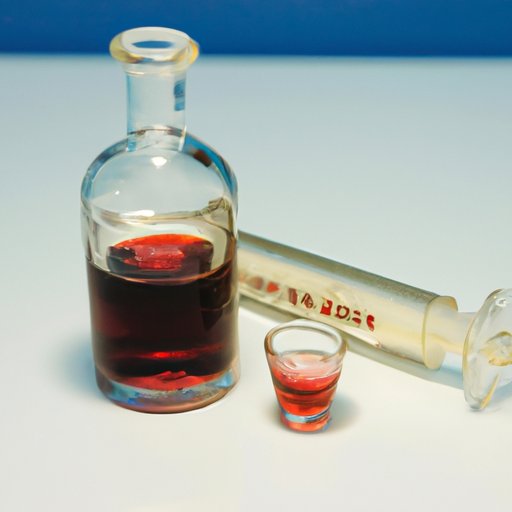
Can Alcohol Make You Gain Weight?
Drinking alcohol and gaining weight seem to go hand-in-hand for many people. In fact, research shows that excessive alcohol consumption can lead to weight gain and even obesity. However, the relationship between alcohol and weight gain is complex, and understanding the science behind it can help you make informed decisions about your drinking habits. In this article, we will explore the ways in which alcohol affects the body and contributes to weight gain, as well as strategies for enjoying alcohol responsibly without compromising your health goals.
The Science Behind Alcohol and Weight Gain: An In-Depth Analysis
When you consume alcohol, your body processes it as a toxin that needs to be metabolized and eliminated. Alcohol contains more calories per gram than carbohydrates and protein, with 7 calories per gram compared to 4 calories per gram for both carbs and protein. While alcohol does not contain any nutrients or vitamins that the body needs, it does provide a significant source of calories.
Moreover, alcohol can interfere with the body’s energy balance by reducing the number of calories that the body burns for energy. This can lead to an overabundance of calories, which can result in weight gain.
Why Excessive Drinking May Be Causing You to Pack on Pounds
Excessive alcohol consumption can also affect appetite and lead to overeating, which can contribute to weight gain. Studies have shown that alcohol can increase the production of ghrelin, a hormone that stimulates appetite and leads to increased food intake. Additionally, alcohol can impair judgment and self-control, making it more difficult to resist unhealthy food choices.
Factors such as genetics, age, and gender can also increase the risk of weight gain from alcohol consumption. Women, for example, may be more susceptible to weight gain from alcohol due to differences in body composition and metabolism.
Booze and Your Belly: How Alcohol Affects Your Metabolism
Excessive alcohol consumption can also interfere with the body’s metabolism, particularly in the liver. When the liver is processing alcohol, it cannot metabolize other nutrients, such as fat, effectively. This can lead to an increase in stored fat, particularly in the abdomen, where it poses a greater health risk than fat stored in other areas of the body.
Additionally, alcohol can disrupt the production of hormones such as insulin and cortisol, which can affect the body’s ability to burn fat and regulate blood sugar levels.
The Connection Between Alcohol and Belly Fat: Breaking it Down
The accumulation of fat in the abdomen, known as visceral fat, is particularly concerning as it has been linked to an increased risk of health problems such as heart disease and diabetes. Alcohol consumption has been shown to contribute to the accumulation of visceral fat, especially in men.
Furthermore, alcohol can also lead to subcutaneous fat, which is the fat located just beneath the skin. While subcutaneous fat is less harmful than visceral fat, it can still contribute to weight gain and body dissatisfaction.
Drinking and Dieting: How Alcohol Fits into a Healthy Lifestyle
While excessive alcohol consumption can lead to weight gain, moderate drinking has been associated with health benefits such as a reduced risk of heart disease and stroke. The key is to consume alcohol in moderation, which for women means no more than one drink per day, and for men, no more than two drinks per day.
When it comes to incorporating alcohol into a healthy diet plan, different types of diets may have different recommendations. For example, low-carb diets may advise avoiding beer and sweetened drinks while opting for spirits or wine, while vegan diets may recommend pairing alcohol with plant-based foods.
How to Enjoy Alcohol Responsibly Without Derailing Your Weight-Loss Goals
One strategy for enjoying alcohol without derailing your weight loss goals is to choose low-calorie options, such as light beer, wine, or spirits mixed with soda water or a low-calorie mixer. Additionally, drinking water alongside alcoholic beverages can help reduce calorie intake and maintain hydration.
It is also important to practice moderation and avoid binge drinking, which can lead to excessive calorie consumption and other health risks. Eating a healthy meal before drinking, and avoiding unhealthy food options while drinking, can also help reduce the likelihood of overeating.
The Ultimate Guide to Drinking Without Gaining Weight
In conclusion, alcohol can contribute to weight gain and obesity, but understanding the science behind it can help you make informed decisions about your drinking habits. By practicing moderation, choosing low-calorie options, and making healthy food choices, you can enjoy alcohol without compromising your health goals. Remember that everyone’s body is different, and what works for one person may not work for another. If you are concerned about your weight or drinking habits, it is always best to consult with a healthcare professional.





